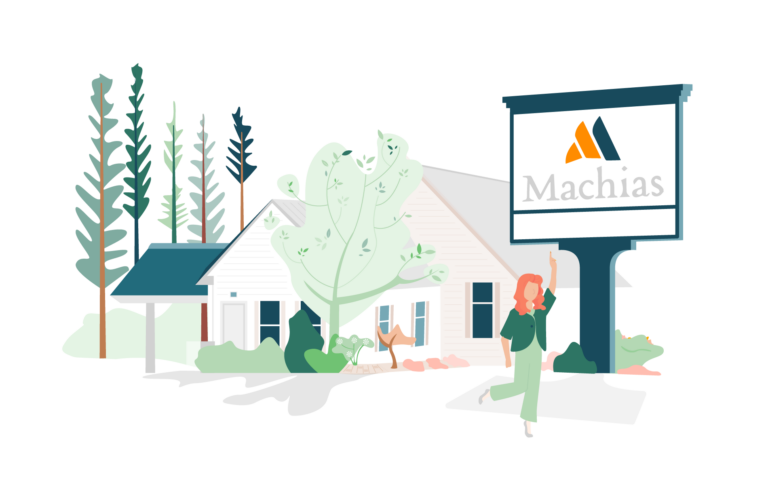The most popular employee benefit just got fast-tracked 20 years
The one benefit employees constantly crave, is the option to work from home. Yet despite this, the number of organizations to voluntarily take the plunge and offer this benefit, remains relatively small.
But with the sudden shock of lockdown forcing many businesses to switch to homeworking, else face financial ruin, has the most popular employee benefit just been fast-tracked by 20 years?
The most desired employee benefit is flexible working
There are countless studies on which employee benefits are the most popular. They tend to produce slightly different results, depending on the survey demographics. But the one employee benefit that crops up in the top five, almost every single time, is that of flexible working, and/or the option to work from home.
A 2017 report by Harvard Business Review claimed that 80% of job seekers seriously consider the option to work from home when looking for a new job. This benefit totally outperformed a ton of other benefits, including:
– Paid maternity/paternity (42%)
– Free gym membership (39%)
– Unlimited vacation (68%)
Further reading: 11 companies that have adopted unlimited holidays (and what they found) (opens in new tab)
That’s right. More people would want the option to work from home, than the option of unlimited vacation leave.
Homeworking is set to stay post-lockdown
The coronavirus pandemic (covid-19) caused many countries to shut down their economies, by telling people to stay at home. Many businesses continued to operate by simply switching to homeworking. But as we begin to emerge from lockdown, many employers are recognizing that actually, letting employees work from home isn’t quite as bad as they thought it might be.
According to the Wall Street Journal, many American employers are formulating plans to let their workforce continue working from home – even after the crisis is over. And according to TheHRDirector.com, 45% of British workers predict that their employer’s attitude to homeworking will permanently change once lockdown is eased.
Of course, homeworking opportunities have been growing noticeably for the last decade or two. But this growth has been very slow, because it requires employers to challenge the status quo – and many people prefer to avoid change, instead of embracing it.
“Better the devil you know than the devil you don’t” has always been the mantra. But with lockdown suddenly forcing huge numbers of businesses to face the reality of managing a homeworking workforce, it seems that the most popular employee benefit may have just been fast-tracked by around 20 years.
More traditional benefits may become even less popular
With more organizations expected to offer more flexible working and home working opportunities, we believe that certain benefits may become less relevant in a post-coronavirus era.
For example:
– Day care services
– On-site gyms
– Canteens and catering facilities
Benefits that were popular pre-lockdown, may become less popular as we return to work – either because they relied heavily on an office-based workforce, or because they were simply designed to compensate the fact that employers were leaving their homes in the first place.
Other benefits may become even more popular
There are certain benefits that were not as popular pre-lockdown, but which you may wish to consider as we enter what is being called the “new normal”.
For example, Employee Benefits News listed the following benefits as fairly low on job-seekers priority lists:
– ID theft prevention (28%)
– Financial planning resources (27%)
– Pet-friendly offices (15%)
These were, of course, pre-lockdown statistics. But we think lockdown will have had an impact on each of them.
For example, if more employees are expecting to work from home post-lockdown, then suddenly, ID theft becomes more of a worry – after all, it is much easier for a criminal to assume your online identity, than it is to do so in real life.
Lockdown has a lot of people worry about their financial futures, too – so we expect to see a rise in demand for employee benefits that help people plan their financial futures.
And think of all the lovable canines and felines who will have gotten used to having their humans around them 24/7 for 3 months. Returning to the workplace will be difficult for pet owners, who may worry about separation anxiety from setting in with their pets. Is it time to make your workplace more pet friendly?
The future for employee benefits
If the most popular employee benefit has been fast-tracked by 20 years, then we wonder what benefits will become more popular 20 years from now.
Already, digitization and big data analytics are shaping the way we approach employee benefits. And this is likely to accelerate now that natural progression has been moved further along the scale.
For example, many experts and analysts believe that the future of employee benefits will focus on wellness. In part, this is because big data tells us that stress, obesity and lack of exercise are some of the biggest global workforce issues. We also know that the workforce, on average, is ageing – people are entering the workforce later due to extended education, while retirement ages continue to rise.
Read more: 20 companies leading the way when it comes to employee perks and benefits
We believe that the future of employee benefits will, therefore, include new ways to help employees eat more healthily, as well as creative new approaches to supporting parents, and new ways to address a healthy work-life balance.
But that’s not all
If a bigger percentage of people are working from home in 20 years, then maybe employee benefits will also focus on making the home working environment more comfortable?
Perhaps you’ll be offering some of these benefits to your staff in 2040:
– Massage chairs. If companies like Boeing and Google currently offer these in the office, then who’s to say we won’t be installing them in our employees’ home offices?
– Digital personal assistants. As artificial intelligence continues to improve, you might find employees looking for their own personal digital assistant, as part of their package. “Alexa, please tell me which team members are on vacation today”
– Meals on wheels. If canteens are to close, then a home-delivery service might be just the benefit that helps you keep your edge!
Some of these might seem like they exist only in a strange parallel utopia. But wouldn’t some of the things we’re experiencing now feel the same, if you imagined them just 20 years ago?


 The winning psychology of owning your mistakes and apologizing at work
The winning psychology of owning your mistakes and apologizing at work
 The invisible productivity factors
The invisible productivity factors
 How Machias Savings Bank improved employee satisfaction and increased commitment to company values
How Machias Savings Bank improved employee satisfaction and increased commitment to company values